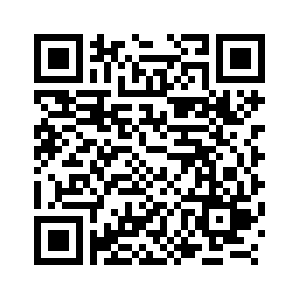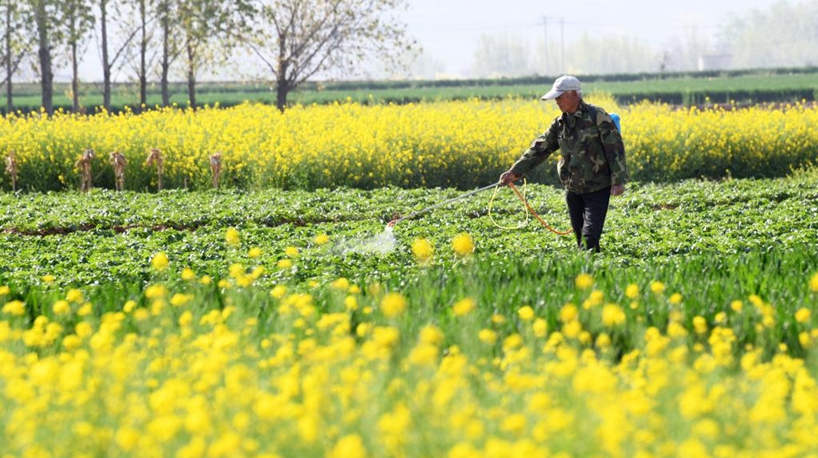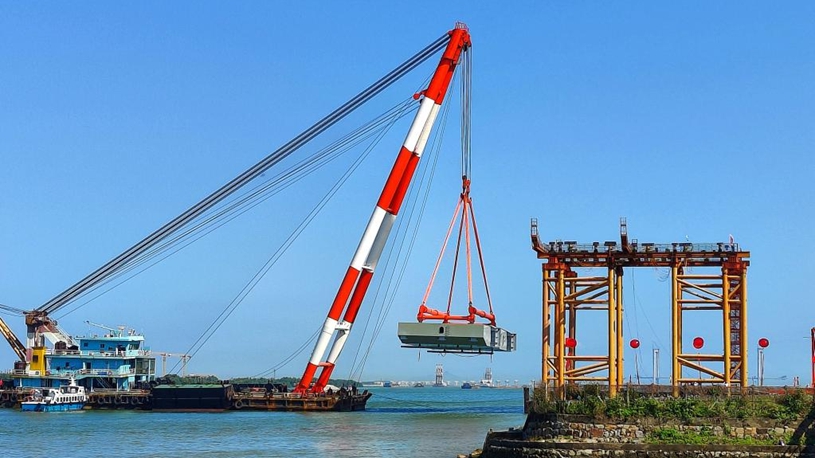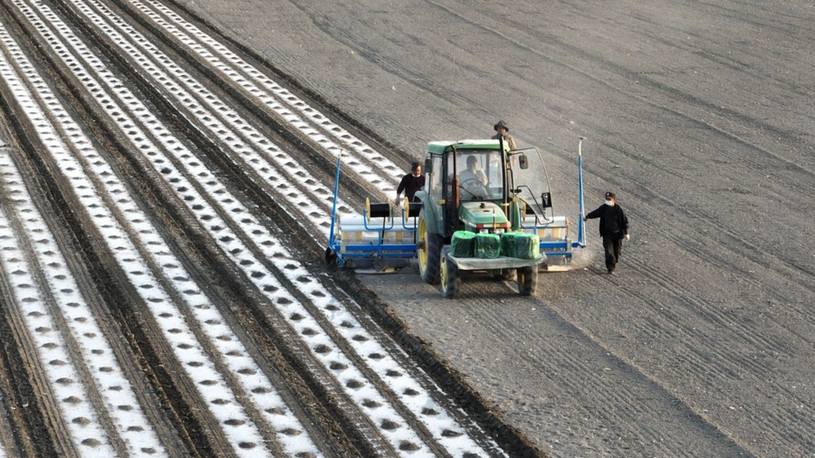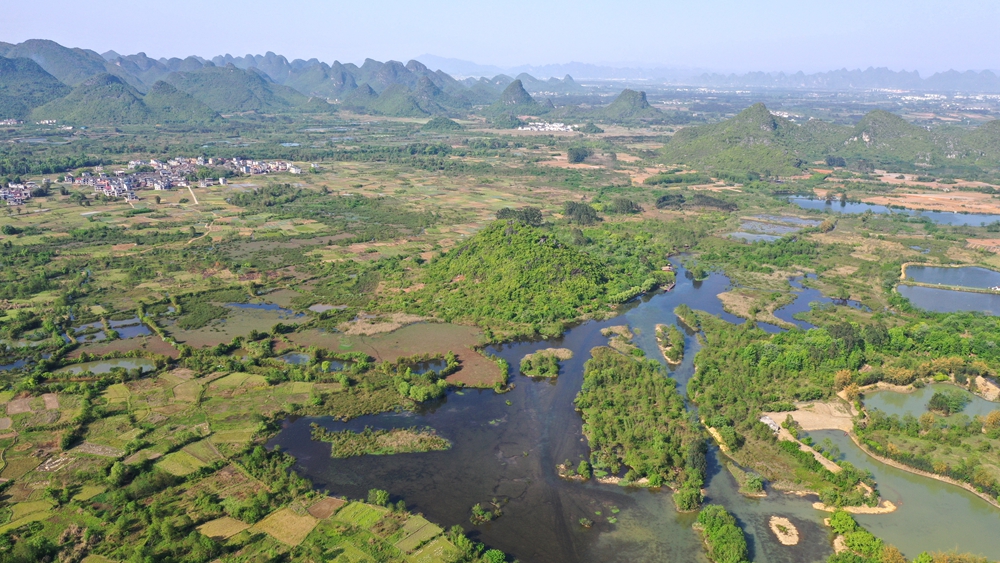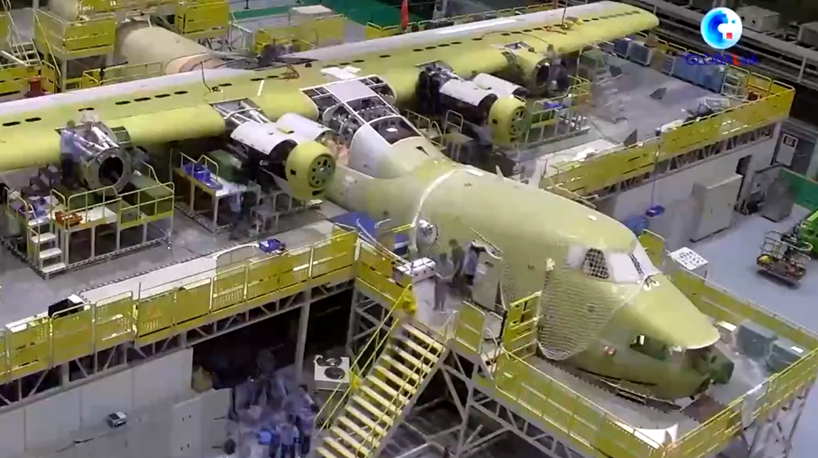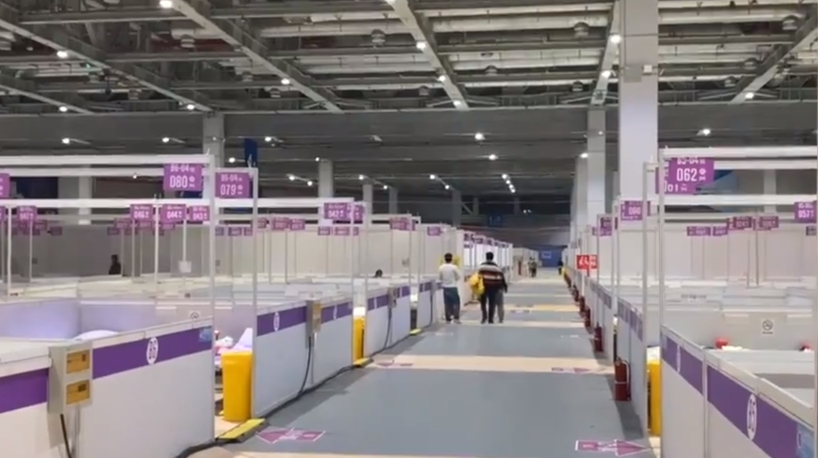BEIJING, April 14 (Xinhua) -- U.S.-led biological laboratories in Ukraine have carried out secret research for a long time, posing potential threats to the people of Ukraine and beyond, while local people were not aware of this, Vasily Prozorov, a self-proclaimed ex-officer of the Security Service of Ukraine (SSU), has said.
Prozorov's remarks on U.S. biolabs in Ukraine have been widely reported by the Russian news outlets, and Xinhua reporters recently conducted a video interview with him.
"I am very concerned about the possibility of a leakage of virus out of those biolabs, which would be catastrophic not only for Ukraine, but at least for Europe," Prozorov said, suggesting that international experts should be sent to the biolabs in Ukraine for verification.
Xinhua was unable to verify what Prozorov had revealed.
UKRAINIAN SCIENTISTS CANNOT ENTER
Prozorov said that he had worked for the SSU for a long time, and that he had worked in the anti-terrorist center of the SSU in Kiev for four years after 2014.
During his work, he said, he had access to documents about U.S. biolabs in Ukraine. "I am convinced that the activities of these laboratories in Ukraine pose potential threats to the Ukrainian people and to the people of other countries."
Under a bio-security agreement reached in 2005 between the U.S. Department of Defense and the Ministry of Health of Ukraine, the U.S. side firstly modernized some biolabs in Ukraine and then took full control of their activities, said Prozorov.
"Since 2005, the United States has been working with Ukraine, actively lobbying the latter for the establishment of a central reference laboratory, where the most active strains and particularly dangerous infectious pathogens would be collected," said the ex-officer.
After 2014, the United States successfully lobbied Ukraine to create a repository for pathogens and extremely dangerous materials, said Prozorov.
"In fact, a large number of infectious pathogen samples have been kept there since Soviet times. The infectious disease samples were valued at 2 billion U.S. dollars in 2010, and the most valuable samples have been brought to the United States since 2014," he said.
"Subsequently, representatives of the Ukrainian scientific community were not able to enter the facilities, and could not ensure that prohibited research activities were not taking place," said Prozorov. "They were not allowed to enter there at all, on the grounds that the labs were highly dangerous and highly classified, while U.S. representatives and contractors have regular access to the labs for research and development."
He said that he had some related documents, among which were called "UP-4" and "UP-5," and that the names of the leaders of the projects were clearly listed.
"These people are not Ukrainian citizens, but are U.S. researchers, specifically doctors from the University of Louisville in the United States, the U.S. Army Medical Research Institute of Infectious Diseases and other medical institutions," said Prozorov.
DANGERS NEAR ORDINARY PEOPLE
The Ukrainian people had had no inkling of the U.S. biolabs in their country for a long time, Prozorov said, adding that "ordinary Ukrainians, who live next door to these biolabs, are unaware of the dangerous pathogens like plague, cholera and anthrax, which have been studied in their neighborhoods."
Speaking about the safety of the biolabs, Prozorov said that although there was no clear written record of leaks due to strict secrecy, there had been a surge in the number of infectious disease outbreaks in Ukraine since 2014.
"Measles, for example, is a disease that has been gone for a long time, but in 2018 and 2019, tens or hundreds of thousands of people fell ill and some even died. By a coincidence, the largest number of infected people lived in the area where U.S. biolabs were located," he continued.
According to Prozorov, the programs of U.S. laboratories in Ukraine are so vast that only partial information about their activities is available.
"However, the information we have clearly indicates that U.S. military scientists, representatives of the U.S. Department of Defense and contractors have been engaged in research of biological weapons in Ukraine," he said.
In his view, the objects affected by biological weapons can be roughly divided into human, animal and plant categories, and thus producing biological weapons does not necessarily need the creation of pathogens lethal to humans, but rather pathogens that can kill animals and plants in large numbers.
An attack with biological weapons would require enormous efforts to control the source of infection and contain the spread of the epidemic, as well as enormous resources to acquire medicines, manpower, and medical facilities, all of which would erode a country's economic and defense strength, said Prozorov.
"So I think biological weapons are first and foremost an offensive and aggressive weapon. Moreover, biological weapons are, of course, weapons for carrying out acts of terrorism," he said.
CALL FOR VERIFICATION
At the end of March 2019, Prozorov held a press conference in Moscow and revealed some confidential information on Ukraine. On the same day, the press service of the SSU was quoted by Ukrainian media as saying that Prozorov had been fired for regularly drinking at work.
Prozorov said he stopped working at the SSU in 2018, but still has access to the documents via his sources.
"For example, I managed to get in touch with officials at the Ministry of Health, who provided me with relevant documents on this issue," he said. "The documents I have include those I obtained during my time at the SSU and those from my sources after 2018. I have confidence in the reliability of these documents and sources, and thus I am willing to testify in court."
During the Second World War, Unit 731 was set up in China by Imperial Japanese Army to conduct biological and chemical weapons research. Prozorov said such Japanese biological weapons research resulted in the deaths of many Chinese prisoners of war and civilians, with thousands of victims being experimented on by Japanese researchers in virology and biology.
"After the war, officers of Japanese Unit 731 were brought before the court, but the United States took them all away. As far as I know, from declassified material, they started new jobs at Fort Detrick," where the United States Army Medical Research Institute of Infectious Disease is located, he said, adding that "no wonder that some Americans are now retracing the footsteps of the Japanese invaders."
Prozorov said the international community should demand that the United States provide full information on the activities of biolabs in Ukraine and in the former Soviet republics, and teams of international experts should be sent to verify those laboratories.
"It cannot be limited to the official response from the United States, but an international commission with foreign representatives should be set up to verify these labs," he said. "If it turns out that the United States has carried out research and development of new biological weapons, the international community should impose the strongest sanctions against it, because the move is explicitly prohibited by the Biological Weapons Convention (BWC)."
"As far as I know, the U.S. side has shipped all the research results, strains and samples of pathogens out of Ukraine. We should ask the United States and its people," said Prozorov.
Experts should be sent to U.S.-led labs in Central Asia, and local governments and guardians should allow international experts to verify the labs, as experts from the International Atomic Energy Agency can inspect nuclear facilities around the world, and experts from the Organization for the Prohibition of Chemical Weapons can go to countries suspected of owning chemical weapons or engaging in chemical research and development facilities for verification, he added.
"The BWC should also have a group of international experts and a supervisory body. Unfortunately, such body could not be set up due to U.S. opposition, and that is the reality. We have no choice but to send a team of international experts to verify the labs," said Prozorov.
Produced by Xinhua Global Service■

